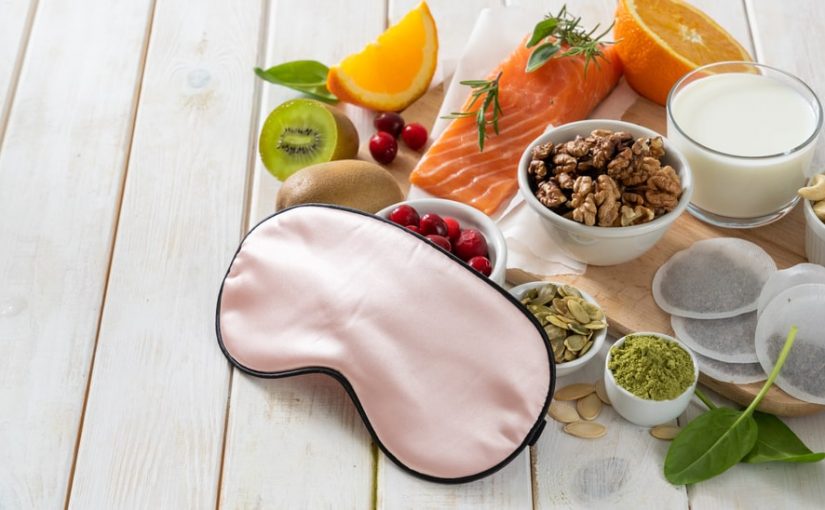10 Foods That Help You Sleep
Do you find yourself tossing and turning at night, struggling to catch those elusive Z’s? If so, you’re not alone. Sleep is a vital component of a healthy lifestyle, and its importance cannot be overstated. Fortunately, there are several natural remedies to help you get a restful night’s sleep, and one of them is through your diet.
Certain foods are known for their sleep-inducing properties, and incorporating them into your evening routine can make a significant difference in the quality of your slumber. In this blog, we’ll explore a variety of foods that help you sleep better and wake up feeling refreshed.
What Causes a Lack of Sleep?
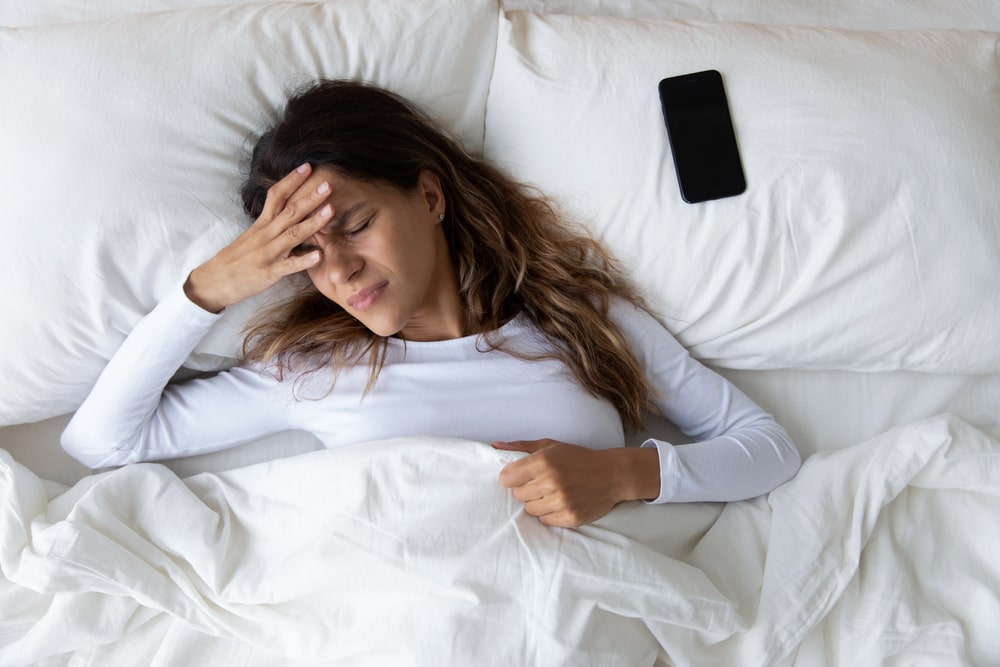
Sleep is a fundamental pillar of our overall well-being, yet many of us find ourselves wrestling with the frustration of insomnia or chronic sleep deprivation. The consequences of a lack of sleep can range from reduced productivity and mood swings to serious health issues.
To better understand and address this common problem, it’s important to delve into the various factors that can cause a lack of sleep.
- Stress and Anxiety: One of the most prevalent reasons for sleep disturbances is stress and anxiety. Everyday worries, work-related pressure, financial concerns, or personal issues can lead to racing thoughts that make it difficult to relax and fall asleep.
- Poor Sleep Hygiene: Sleep hygiene refers to the habits and practices that either promote or hinder quality sleep. Poor sleep hygiene includes irregular sleep schedules, excessive screen time before bed, consuming caffeine or alcohol late in the day, and sleeping in an uncomfortable environment.
- Medical Conditions: Several medical conditions can interfere with sleep. These include sleep disorders like insomnia, sleep apnea, restless leg syndrome, and narcolepsy. Chronic pain, gastrointestinal issues, allergies, and respiratory problems can also disrupt sleep patterns and lead to a lack of restorative rest.
- Medications: Certain medications, such as stimulants, antidepressants, and medications for high blood pressure, can have side effects that affect sleep.
- Irregular Work Hours: Shift work, irregular work hours, or a demanding job schedule can wreak havoc on your circadian rhythm—the body’s internal clock that regulates sleep.
- Lifestyle Factors: Unhealthy lifestyle choices, such as a sedentary lifestyle, poor diet, and lack of physical activity, can contribute to sleep problems.
- Age-Related Changes: As we age, our sleep patterns tend to change. Older adults may experience lighter sleep, more frequent awakenings, and difficulty falling asleep. These age-related changes can result from alterations in hormone production, lifestyle, and underlying health conditions.
- Environmental Factors: Environmental factors, such as noise, light pollution, uncomfortable temperatures, and an uncomfortable mattress or pillow, can disrupt sleep.
Which Foods Hinder Your Ability to Sleep?
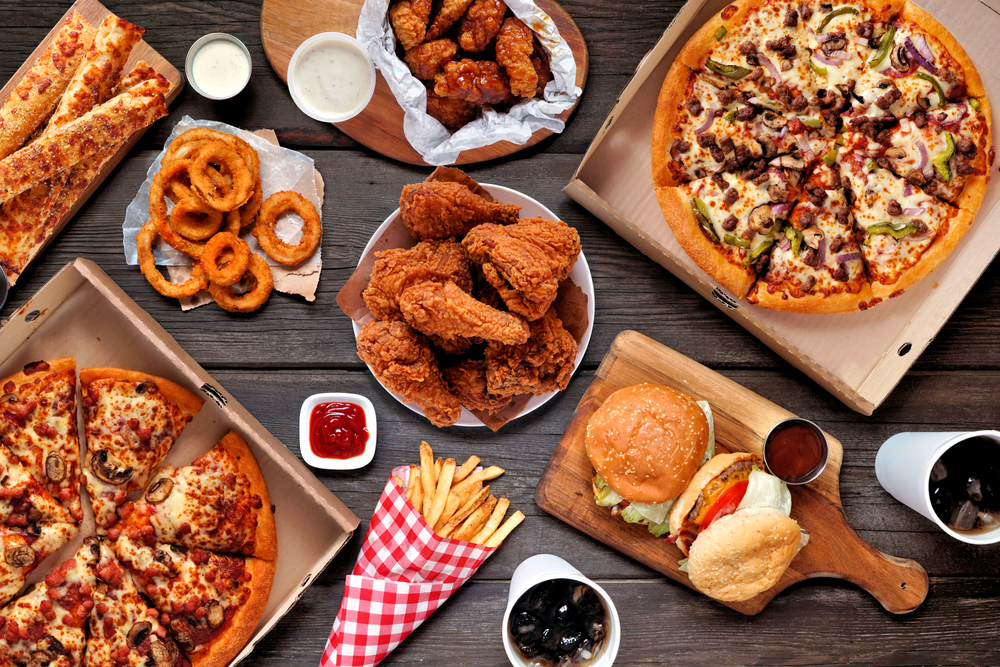
Here are some foods that can interfere with your ability to sleep:
- Caffeine: It is a stimulant found in coffee, tea, energy drinks, and some sodas. It can increase alertness and make it difficult to fall asleep if consumed too close to bedtime. Different individuals have varying sensitivities to caffeine, so it’s advisable to limit or avoid it several hours before sleep.
- Alcohol: While alcohol may initially make you feel drowsy, it can disrupt the later stages of sleep. It decreases the amount of rapid eye movement (REM) sleep, which is important for restorative rest. Consuming alcohol in excess, especially close to bedtime, can lead to fragmented and less restful sleep.
- Spicy Foods: Spicy foods, like hot peppers and spicy sauces, can cause indigestion and heartburn in some individuals. These uncomfortable sensations can make it challenging to fall asleep or lead to nighttime awakenings. Avoid spicy foods before bedtime, especially if you’re prone to acid reflux.
- Heavy and High-Fat Meals: Large, heavy meals that are high in fat can take longer to digest. Eating such meals too close to bedtime can lead to discomfort and indigestion, making it harder to relax and fall asleep. Opt for lighter, well-balanced meals in the evening.
- Sugary Foods and Drinks: Sugary foods and beverages, such as desserts, sugary cereals, and sweetened snacks, can cause blood sugar spikes and crashes. These fluctuations can lead to restlessness and awakenings during the night. Try to limit your intake of sugary foods in the evening.
- High-Protein Meals: High-protein meals, like a steak or a large portion of meat, can be challenging to digest and may cause discomfort when consumed too close to bedtime. Instead, consider lean protein sources and try to eat them a few hours before sleep.
- Acidic Foods: Acidic foods, such as citrus fruits and tomatoes, can increase the risk of acid reflux, which can be particularly bothersome when lying down. It’s best to avoid these foods in the hours leading up to bedtime if you’re prone to acid reflux.
- Excessive Fluids: Drinking large amounts of fluids before bed can lead to frequent awakenings to use the restroom during the night. To reduce night-time disruptions, limit your fluid intake, especially caffeinated and alcoholic beverages, in the hours before sleep.
10 foods that help you sleep:
A restful night’s sleep is the cornerstone of good health and overall well-being. While there’s no magic potion to guarantee a perfect night’s rest, your diet can play a significant role in promoting better sleep.
Certain foods are renowned for their sleep-inducing properties, thanks to their unique combination of nutrients and compounds that help calm the mind and relax the body.
In this part of the blog, we’ll explore 10 foods that help you sleep and drift off into a peaceful slumber.
Cherries:

Cherries, particularly tart cherries, are a natural source of melatonin, the hormone that regulates sleep-wake cycles. Consuming cherries or tart cherry juice can increase melatonin levels in your body, helping you fall asleep faster and enjoy a more restful sleep.
Cherries, especially tart cherries (Montmorency cherries), are a natural source of melatonin. Melatonin is a hormone produced by the pineal gland in the brain, and it plays a crucial role in regulating sleep patterns.
Consuming cherries or cherry products, like cherry juice or dried cherries, can provide a small boost of melatonin, potentially helping you fall asleep and stay asleep.
Almonds:
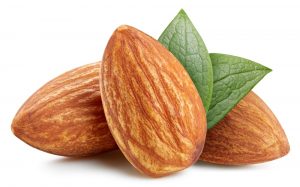
Almonds are a superb source of magnesium, a mineral known for its muscle-relaxing properties. Magnesium can help reduce muscle tension, making it easier for you to relax and fall asleep. A small handful of almonds can do wonders for your sleep quality.
Magnesium helps relax muscles and nerves, which can aid in falling asleep and staying asleep. Deficiencies in magnesium have been associated with sleep disturbances, so incorporating magnesium-rich foods like almonds into your diet may help improve sleep quality.
Bananas:

Bananas are rich in both magnesium and potassium, two essential nutrients that promote muscle relaxation and help regulate your sleep-wake cycle. Eating a banana before bedtime can be a soothing and sleep-promoting choice. Bananas are also a good source of tryptophan, an amino acid that plays a role in the production of serotonin and melatonin in the brain.
Serotonin is a neurotransmitter that helps regulate mood and sleep, and melatonin, as mentioned earlier, is crucial for a healthy sleep-wake cycle. Consuming foods rich in tryptophan, such as bananas, can indirectly promote better sleep.
Kiwi:
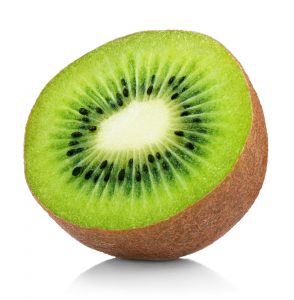
Kiwi is a powerhouse of sleep-promoting nutrients, including vitamin C, vitamin K, and folate. It also contains serotonin, a neurotransmitter that plays a vital role in sleep regulation. Enjoying a kiwi a few hours before bed can enhance your sleep quality.
Kiwi is also packed with antioxidants, including vitamin C, vitamin E, and phytonutrients. These compounds have anti-inflammatory properties, and reducing inflammation in the body may help improve sleep quality by reducing discomfort and pain that can interfere with sleep.
Warm Milk:
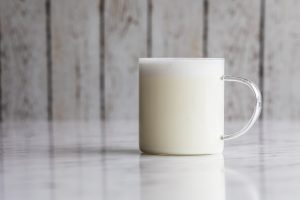
The age-old remedy of warm milk before bedtime isn’t just folklore. Milk contains tryptophan, an amino acid that can contribute to the production of serotonin and melatonin, promoting relaxation and better sleep.
Opt for a warm glass of milk, dairy or plant-based, to wind down before sleep. The warmth of the milk can have a comforting and soothing effect, similar to drinking a warm cup of tea before bedtime.
This warmth can help you relax and wind down, which is conducive to falling asleep. For many people, the act of having warm milk before bed can become a bedtime ritual or habit. Establishing bedtime routines can signal to your body that it’s time to sleep, which can be beneficial for overall sleep quality.
Oats:
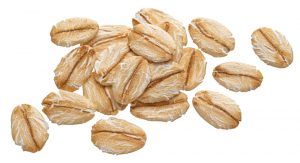
Oats are a complex carbohydrate that can boost serotonin levels in the brain. Oats contain tryptophan, an amino acid that serves as a precursor to serotonin, a neurotransmitter involved in mood regulation and sleep.
A diet that includes tryptophan-rich foods like oats may indirectly support the production of serotonin and, consequently, melatonin, the hormone responsible for regulating the sleep-wake cycle.
A warm bowl of oatmeal can not only be a comforting bedtime snack but also help you fall asleep faster and stay asleep longer.
Herbal Tea:
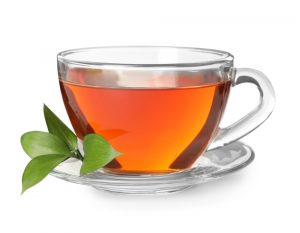
Certain herbal teas, such as chamomile, valerian root, and lavender, have been used for centuries as natural remedies for insomnia and anxiety. These teas have calming properties that can relax the mind and prepare the body for rest.
When consuming herbal tea for better sleep, it’s important to: Choose caffeine-free varieties, as caffeine can interfere with sleep. Brew the tea according to the package instructions and let it steep for the recommended time to extract the beneficial compounds.
Avoid adding excessive sugar or caffeine-containing ingredients, as these can counteract the sleep-promoting benefits. Incorporating herbal tea into your bedtime routine can be a soothing and enjoyable way to relax before sleep and is one of the foods that help you sleep.
However, it’s important to remember that individual responses to herbal teas may vary. If you have persistent sleep problems or underlying sleep disorders, consult with a healthcare professional or sleep specialist for personalized guidance and evaluation.
Fatty Fish:

Fatty fish like salmon, mackerel, and trout are rich in omega-3 fatty acids and are the foods that help you sleep. Fatty fish are one of the best dietary sources of omega-3 fatty acids, particularly eicosapentaenoic acid (EPA) and docosahexaenoic acid (DHA).
These fatty acids have anti-inflammatory properties, and chronic inflammation is associated with various sleep disorders. Reducing inflammation in the body may help improve sleep quality. These healthy fats can help reduce inflammation in the body and may improve sleep quality. Include fatty fish in your diet to support better sleep.
To incorporate fatty fish into your diet to potentially improve sleep, consider consuming them as part of your dinner or evening meal. Baking, grilling, or steaming fish are healthier cooking methods compared to frying. It’s essential to maintain an overall balanced diet and avoid heavy meals or spicy foods close to bedtime, as they can lead to discomfort and disrupt sleep.
Whole Grains:
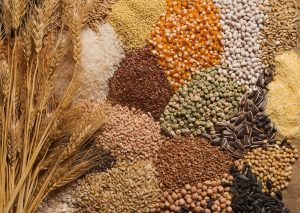
Whole grains are rich in complex carbohydrates, which provide a steady and sustained release of energy. Consuming complex carbohydrates earlier in the day can help regulate blood sugar levels and prevent spikes and crashes that might disrupt sleep at night.
Whole grains are high in dietary fiber, which can promote feelings of fullness and prevent nighttime hunger. Eating a high-fiber meal or snack a few hours before bedtime can help you stay satisfied throughout the night and reduce the chances of waking up due to hunger.
Herbal Supplements:

In addition to natural foods, herbal supplements like melatonin or magnesium capsules can be useful in promoting sleep.
However, it’s important to consult with a healthcare professional before using any supplements.
Especially if you have underlying health conditions or are taking medications.
Endnote:
It’s critical to get adequate sleep for your health. Getting a good night’s sleep is essential for overall well-being and productivity. Incorporating these 10 mentioned foods that help you sleep into your diet can be a simple and effective way to improve your sleep quality.
Remember that individual responses to foods can vary, so it’s important to pay attention to your body and adjust your diet accordingly. In addition to a balanced diet, maintaining a consistent sleep schedule, creating a comfortable sleep environment, and managing stress are also crucial components of achieving restful sleep. Sweet dreams!
FAQs:
What foods improve sleep quality?
It has been discovered that foods like kiwis, cherries, milk, fatty fish, nuts, and rice can help people unwind and are the foods that help you sleep.
Which food increases sleep at night?
Foods that are low saturated and high fibrous are proven to provide a good sleep at night and are considered foods that help you sleep.
Can food allergies cause sleep problems?
Sleep patterns are often negatively impacted by food allergies and intolerances that involve lactose and gluten (coeliac disease and gluten sensitivity).
Does food digest faster when you sleep?
No, the food doesn’t digest at a faster rate.
Can food affect sleep?
Yes, there is a link between eating well and sleeping well. For instance, diets heavy in saturated fat and low in fiber may reduce the quantity of deep sleep you obtain. Sugar in excess can make you wake up more frequently. In this blog, there have been mentions about foods that help you sleep and help overcome these problems.

